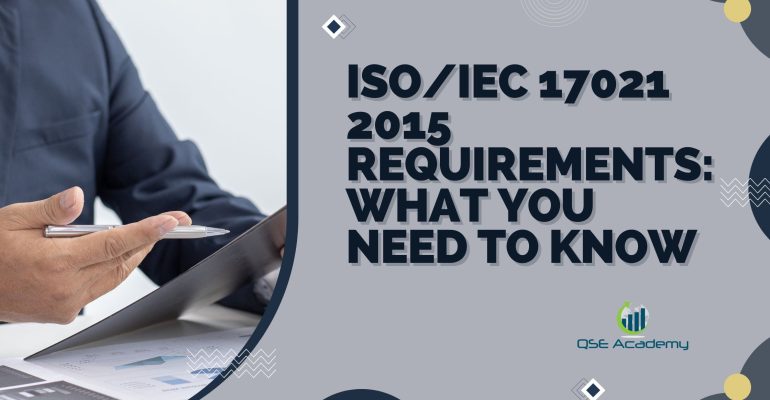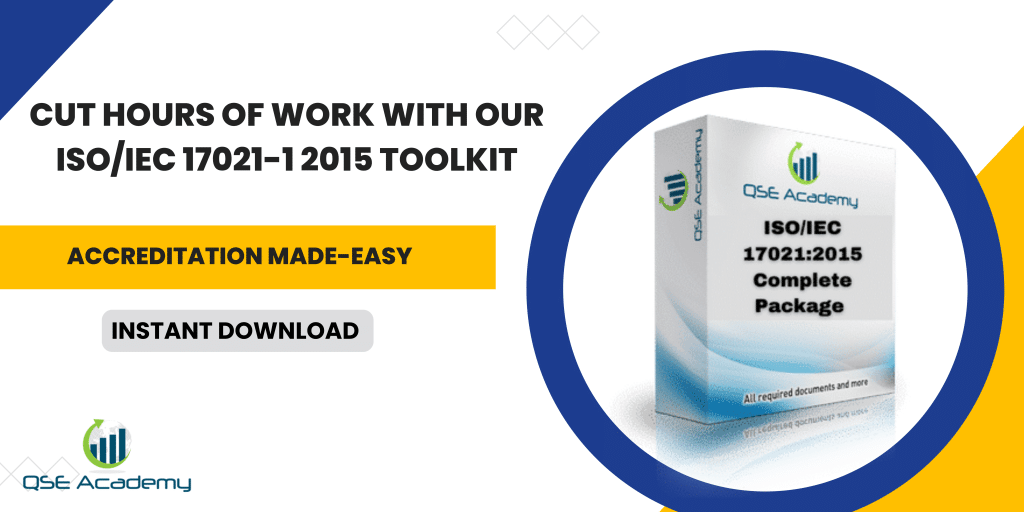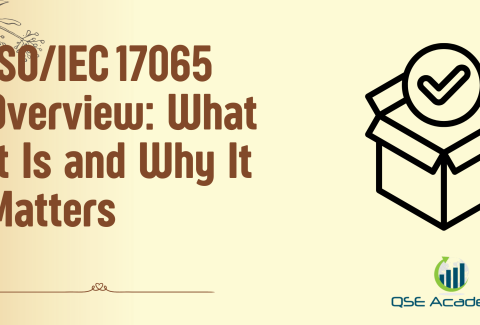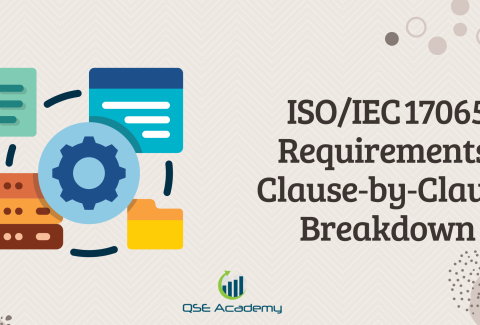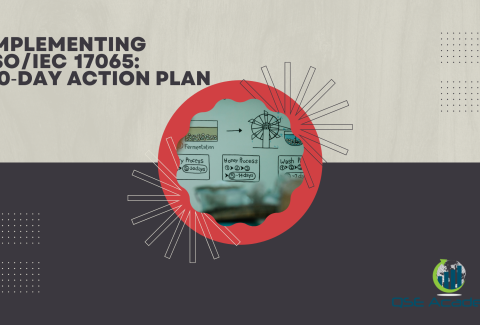ISO/IEC 17021 2015 Requirements: What You Need to Know
Last Updated on September 25, 2025 by Melissa Lazaro
ISO/IEC 17021:2015 is a critical standard for certification bodies. It outlines requirements for auditing and certifying management systems, ensuring competence, consistency, and impartiality in certification processes. For professional quality managers and business owners, understanding and implementing ISO/IEC 17021:2015 is crucial to maintain high standards and enhance credibility.
Understanding ISO/IEC 17021:2015
ISO/IEC 17021:2015 specifies requirements for bodies providing audit and certification of management systems. This standard covers various types of management systems, including quality, environmental, and safety. The scope of ISO/IEC 17021:2015 is extensive, ensuring that certification bodies operate competently and consistently.
The standard evolved significantly in the 2015 version, addressing new challenges in the certification landscape. Key updates included enhanced requirements for impartiality, competence, and process management, reflecting the increasing complexity of global business environments.
Structure of ISO/IEC 17021:2015
ISO/IEC 17021:2015 is structured into ten main clauses:
- Scope: Defines the applicability of the standard.
- Normative References: Lists related standards and documents.
- Terms and Definitions: Provides clarity on key terms.
- Principles: Outlines the fundamental principles of certification, such as impartiality and competence.
- General Requirements: Covers legal, contractual, liability, and financial matters.
- Structural Requirements: Focuses on organizational structure and management.
- Resource Requirements: Addresses personnel competence, outsourcing, and training.
- Information Requirements: Deals with publicly accessible information, certification documents, and use of marks.
- Process Requirements: Describes the audit process, including planning and conducting audits.
- Management System Requirements: Specifies general management system requirements for certification bodies.
Key Requirements of ISO/IEC 17021:2015
Clause 4: Principles ISO/IEC 17021:2015 is built on principles such as impartiality, competence, responsibility, openness, confidentiality, and responsiveness to complaints. These principles ensure that certification processes are fair, competent, and transparent.
Clause 5: General Requirements Certification bodies must address legal and contractual matters, liability, and financing. They must have policies to manage conflicts of interest and ensure that their activities remain unbiased.
Clause 6: Structural Requirements The organizational structure of a certification body must support its certification activities. Clear roles and responsibilities are essential for maintaining effective management and operations.
Clause 7: Resource Requirements Personnel competence is critical. Certification bodies must have qualified staff and provide ongoing training to ensure they stay updated with industry standards.
Clause 8: Information Requirements Certification bodies must provide accurate and accessible information to the public, including details about their certification processes and the use of certification marks.
Clause 9: Process Requirements The audit process must be thorough and systematic. Certification bodies should plan and conduct audits meticulously, ensuring all relevant aspects are evaluated.
Clause 10: Management System Requirements Certification bodies need to implement and maintain a robust management system, focusing on continuous improvement and adherence to standards.
Detailed Examination of Clauses
Impartiality and Objectivity (Clause 5) Maintaining impartiality is critical. Certification bodies must implement measures to prevent conflicts of interest. For example, XYZ Certification Services in California established an independent impartiality committee to oversee all certification decisions, ensuring objectivity.
Competence of Personnel (Clause 7) Certification bodies must have a rigorous selection and training process for auditors. ABC Auditing Solutions in Texas implemented a comprehensive training program that includes regular workshops and certifications to keep their auditors at the top of their game.
Audit Process (Clause 9) Effective audit processes are the backbone of certification. During an audit at DEF Manufacturing in Ohio, a meticulous audit plan helped uncover critical areas for improvement, which significantly enhanced their operational efficiency post-certification.
Management System (Clause 10) A robust management system is essential for continuous improvement. GHI Inspection Services in New York implemented a dynamic management system that not only met ISO/IEC 17021:2015 requirements but also facilitated seamless operations and quality control.
Implementing ISO/IEC 17021:2015 in Your Organization
Conducting a Gap Analysis Start by assessing your current practices against ISO/IEC 17021:2015 requirements. This gap analysis will help identify areas needing improvement. At JKL Quality Systems in Florida, a detailed gap analysis was instrumental in their smooth transition to ISO/IEC 17021:2015 accreditation.
Developing an Implementation Plan Create a detailed implementation plan with clear objectives and timelines. Assign responsibilities to ensure all aspects of the standard are addressed. MNO Certification Inc. in Illinois found that a well-structured implementation plan kept their team focused and on track.
Training and Awareness Educate your staff about ISO/IEC 17021:2015 requirements. Conduct training sessions and workshops to build a culture of quality and compliance. At PQR Audits in Washington, regular training sessions increased staff engagement and adherence to standards.
Documenting Processes Develop and maintain comprehensive documentation. Ensure all processes are well-documented and controlled. STU Certifiers in Georgia streamlined their documentation process, which was crucial during their accreditation audit.
Challenges and Solutions in Implementing ISO/IEC 17021:2015
Common Challenges Implementing ISO/IEC 17021:2015 can be challenging. Common issues include resistance to change, resource constraints, and the complexity of requirements. Understanding these challenges can help in developing effective strategies to address them.
Strategies for Overcoming Challenges Effective communication and leadership are key to overcoming resistance. Allocating adequate resources and simplifying processes can also help. VWX Certification in Arizona successfully navigated these challenges by fostering a culture of open communication and continuous improvement.
Benefits of ISO/IEC 17021:2015 Certification
Enhanced Credibility and Trust ISO/IEC 17021:2015 certification enhances your credibility. Clients and stakeholders trust your certification processes, knowing they meet international standards. This trust can lead to increased business opportunities and a stronger market position.
Improved Operational Efficiency Certification helps streamline your processes, reducing errors and improving efficiency. YZA Auditors in Michigan reported a significant reduction in operational costs after achieving ISO/IEC 17021:2015 certification.
Competitive Advantage ISO/IEC 17021:2015 certification differentiates you from competitors. It signals to clients that you are committed to quality and continuous improvement. BCD Certifications in Nevada leveraged their certification to win major contracts and expand their client base.
Regulatory Compliance Meeting international standards ensures compliance with regulatory requirements. This can facilitate easier access to global markets and reduce the risk of legal issues. EFG Certifiers in New Jersey found that their certification opened up new international business opportunities.
Looking for More Resources on ISO 17021?
If you found this article helpful, explore our premium resources designed to help you achieve ISO 17021 certification efficiently:
- Complete Documentation Package for ISO/IEC 17021-1 2015: Get all the essential templates and documents you need for fast, easy implementation.
- Online Course on ISO/IEC 17021-1 2015 : Enroll in our comprehensive training to master the key concepts and practical steps toward certification.
- ISO/IEC 17021-1 2015 Checklist: Download our detailed checklist to ensure you’ve covered every step of the process.
These resources are tailored to meet your needs and ensure a smooth certification journey. Explore them today and get one step closer to success!

